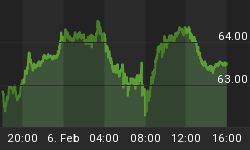The Pentagon isn’t a business, and that’s exactly the problem these days. It’s lost its tech edge to the commercial sector and could lose it to global enemies.
That situation has now led to the resignation of Preston Dunlap, a senior Pentagon official in charge of the Defense Department’s technological innovation.
After officially stepping down on Monday, Dunlap suggested on Tuesday that the overly bureaucratic Pentagon should be thinking more along the lines of SpaceX, and working closely with the private sector rather than wasting time on incessant turf wars.
In a lengthy statement published on Linkedin, Dunlap said: "By the time the Government manages to produce something, it's too often obsolete. Much more must be done if DoD is going to regrow its thinning technological edge."
Dunlap called the Pentagon “the world’s largest bureaucracy” and noted that, "Ironically as I'm writing this, I received notification that the phone lines are down at the Pentagon IT [information technology] help desk. Phone lines are down? It's 2022, folks.”
This isn’t China, where top private sector tech companies are working in the national interest–unless the national interest is simply to generate more money to flow through the economy.
That puts the Pentagon at an immediate disadvantage in the face of Beijing, where the Communist Party manages to call the shots and reign in their tech giants for their own benefit.
It also suggests that global technological dominance–the kingmaker of future superpower–will go to the country that can either control its ‘private’ sector in a brutal, non-free-market fashion, or figure out how its defense department can think and operate like the private sector.
In other words, it’s Pentagon Inc, or we lose the edge.
In an op-ed for The Hill, Senator Todd Young (R-Ind) heralded a bipartisan innovation bill that he believes will drag the Pentagon into the 21st Century.
Senator Young called on the United States to “unleash private sector innovation” and significantly increase investment in national security.
“China and Russia have enhanced their naval and aerial strike capabilities and are making significant strides in cyberwarfare. The Chinese Communist Party (CCP) has successfully tested a hypersonic glide vehicle capable of delivering a nuclear weapon while avoiding the detection of the United States’ early warning radar tracking systems,” he wrote.
Young accused Democrats of “calling for reckless reductions to the Pentagon’s budget”--a move he said would be welcomed in China and Russia.
It’s really a question of innovation and moving into the 21st Century, with Dunlap saying the United States should take more risks when it comes to testing new technology, from hypersonic to artificial intelligence if it wants to leapfrog over its adversaries.
Dunlap is the third Pentagon official to resign in the past year.
















